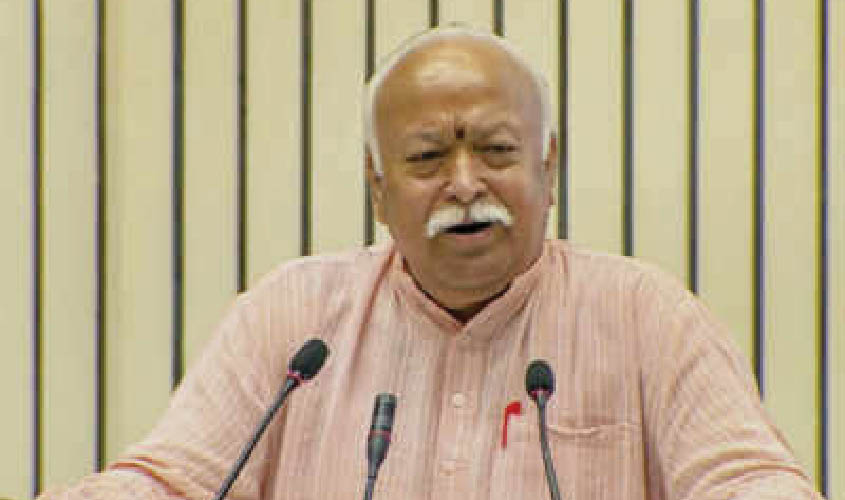Mohan Bhagwat’s speeches this week on the organisation he heads, the Rashtriya Swayamsevak Sangh, would have gone a long way in clearing the innumerable misconceptions that critics have of this outfit. It also would have charted out a clear, ideological path for swayamsevaks and other followers of the Sangh—a path that can be described as “progressive right” or “progressive conservative”. It’s a path that draws sustenance from tradition, but is yet forward moving and evolutionary, in keeping with the times.
Bhagwat’s speech has been praised for espousing inclusiveness and individual liberty, and rightly so. He spoke on a range of subjects, from RSS’ own history to nationalism, Hindu rashtra, Ram temple, Jammu & Kashmir, inclusion, diversity, its political arm, the Bharatiya Janata Party, and even on topics that many would not have expected him to speak on—mob lynching, cow vigilantism and even homosexuality. Inclusivity was the common thread to bind these topics. Bhagwat made it clear that mob lynching in the name of cow protection was unacceptable—something that has been repeatedly said by the Prime Minister too—even as he emphasised on the protection of cows in a Constitutional manner. He also said that homosexuals were a part of society and since times were changing society should accept
The Sarsanghchalak’s comments can be interpreted as the RSS offering an inclusive worldview, which is rooted in Hinduism. It’s a worldview that draws from Hinduism both its sustenance and the confidence to embrace the “Other” as its own. Ideologically, what has been offered is a clear alternative to Nehruvian secularism, or the way it has been practised in this country—a secularism that has morphed into a gigantic, misshapen beast, has given the majority a minority complex, and has divided the country more than uniting it.
Bhagwat’s statements on Ram temple and Articles 370 and 35A were in keeping with the Sangh’s earlier pronouncements, that the two offending Articles must be abrogated and that Ram temple must be built, which would erase a lot of enmity among Hindus and Muslims. This can also be seen as a reminder to the BJP that its government at the Centre has done nothing on these two fronts in the over four years that it has been in power. Thus, Bhagwat was also reflecting the mood of the BJP base, which is getting restless, faced with the inaction on these fronts.
On the whole, there was nothing in Bhagwat’s speech that would give credence to Rahul Gandhi’s comparison of the RSS with the Muslim Brotherhood, a banned radical Islamist organisation. However, in these politically divided times, such hyperbole will continue to dominate the political landscape, especially since Bhagwat’s speeches could be seen as a message to Muslims that they need not fear the Sangh Parivar. Considering some in the Opposition consider this minority community as their captive vote bank, Bhagwat’s assurances would have ruffled many feathers across such parties.

